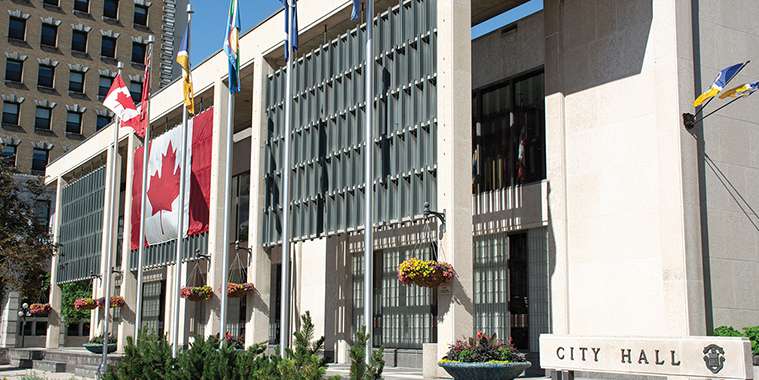By Peter Squire
As we head into the final month before we decide who we want to serve as our mayor, it is important to be informed about all the issues our new mayor will need to address to make Winnipeg viable far into the future.
A lot of important questions are being asked of the candidates, given how critical it is that we are able to move ahead in a sustainable, fiscally responsible way. At the same time, we need to build a vision for our city that is inclusive and welcoming to all, so people are engaged and committed to making a future for themselves and their families here, not elsewhere in the country as we are seeing with so much outmigration to other provinces.
One question that needs to be addressed immediately is what will our new mayor and city council do to retain our young people to help support local industry and new emerging ones as coveted employees. We also need a plan on how to attract newcomers to settle here for the long-term, and not just view Winnipeg as a temporary place to hang their hat before moving on after a few years for more opportunity elsewhere.
A very important undertaking in the last few years was the development and completion of OurWinnipeg 2045 and its companion document, Complete Communities Direction Strategies 2.0 (CCDS 2.0). The document sets out a future direction and blueprint for our city, with strong parameters and benchmarks to help determine how we are progressing and meeting our growth and development objectives.
CCDS 2.0 is a solid foundational document to keep everyone on the same footing and on track to advance as Winnipeg and the surrounding metropolitan region grows to be more populous and eventually reach one million people. It is Winnipeg’s citywide secondary plan that guides growth, development and land use.
We are literally asking ourselves what we want to do when we grow up. Why? Because we realize to be fiscally and environmentally sustainable, infill development within the built-up part of our city is critical to managing our growth, and maximizing — with optimal efficiency — the use of our existing infrastructure in a condition that we can maintain and enjoy to improve our quality of life.
The city has developed other key planning documents to ensure we can grow sustainably without compromising our ability to move goods and people around our city and region. They are the 2020-23 multi-year budget, Infrastructure Plan, the recently approved Transit Master Plan and Transportation Master Plan 2050, which the new mayor and city council will have the opportunity to discuss, deliberate on and debate prior to final public consultations before approving it in 2023.
More questions surround providing enough housing to meet a growing population and what kind of housing types and mix are needed to keep our prices affordable long-term so homeownership is not a pipe dream like it is in some other major Canadian cities. We know for the younger demographic — and that certainly includes many newcomers who have a younger profile — that they covet homeownership and seek out family-friendly housing. While all the multi-family construction we are seeing in the city, such as along Pembina Highway, is welcome to meet new housing supply, we cannot lose sight of the fact that we need to match housing with the needs of people living here now and into the future.
All this new growth and population increase — be it for residential, commercial and/or employment lands related development — has to be supported by strategic, enabling infrastructure with the requisite servicing of shovel-ready land. How will our new mayor and city council show leadership and work together as a team to bring forward a compelling game plan, one that includes a set of key strategic priorities with solid and accountable metrics that will attract much needed senior-level government funding to make them viable and timely? The coming together of all three levels of government this year to support more funding to construct the North End Water Pollution Control Centre (NEWPPC) is encouraging and critical, but there is much more to get going on.
One which comes to mind right off the top for Winnipeg is CentrePort South. It will bring much needed and well located employment lands onto the market, which have been clearly identified as being in short supply. It will also provide new residential development in West Winnipeg, which we have not seen in years, as new development has been happening in other quadrants of the city.
Related to CentrePort, which is a success story for the RM of Rosser and Winnipeg Metropolitan Region — but not being capitalized yet by the City of Winnipeg — is extending Chief Peguis Trail west from Main Street to Brookside Boulevard. When will the necessary government funding support come together to get this one off the ground?
Accepting we can start putting the necessary infrastructure in place to grow our city, what steps are we taking to allow development to be approved in an efficient and timely manner without undue delays? Modernization of our 2006 city-wide zoning by-law is crucial, and the current civic administration and city council have applied to the federal government’s $4- billion housing accelerator fund to kickstart that necessity. Moving the processing of permits online is a positive and necessary development, as well as the commitment to bring on additional permanent permit staff, but how are we finding better solutions to coordinate development and building permit processing between all the civic departments beyond Planning, Property and Development?
There are many great candidates running for Mayor of Winnipeg in the 2022 Civic Election, and many have addressed the questions raised in this article. To find out more details, be sure to read this week’s mayoral candidate’s column on page 6 or scan the QR code found on that page to listen to all the mayoral podcasts hosted by the Winnipeg Regional Real Estate Board. Two more episodes are due to be released between now and the election, and all registered candidates have participated in an interview so be sure to subscribe so you don’t miss a single one.
Podcasts can be found on Spotify: https://open.spotify.com/show/412BcdfdpXloAFONMfNiH or on Apple Podcast: https://podcasts.apple.com/ca/podcast/the-voice/id1571504627 #conversationwithmayoralcandidates
Tune in and hear what your next mayor has to say before casting your vote on October 26.
Peter Squire is the Winnipeg Regional Real Estate Board’s Vice-President External Relations & Market Intelligence.



